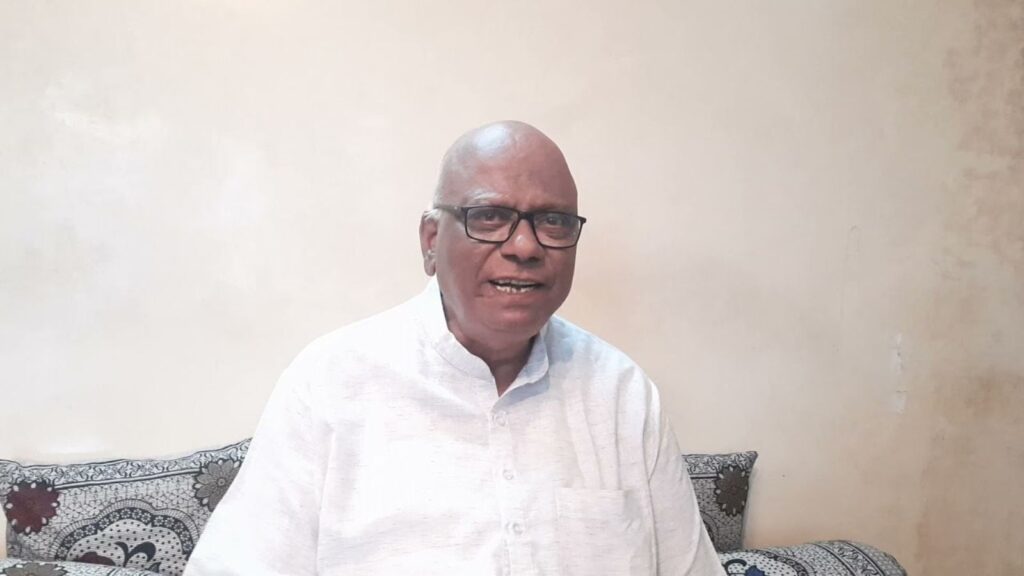Basavaprabhu Lakhmagouda Patil, a 77-year-old advocate from Athani in Karnataka’s Belgaum district, has spent over three decades working to eliminate the devadasi system and rehabilitate women trapped in the practice. Born in 1946 into a Lingayat family in Mallabadi village, Patil witnessed social discrimination from an early age. His father owned 135 acres of farmland and served as village headman, but practised untouchability. These early experiences shaped Patil’s commitment to social reform.
The turning point came in the early 1980s when social scientist Sankara Jogan delivered a lecture at an Athani college, revealing that “every second prostitute in Bombay’s red-light area comes from Athani.” “This statement prompted me to abandon my legal practice and dedicate myself to addressing the devadasi system,” he recalled.
In 1985, Patil established Vimochana Devadasi Punarwasati Sangha, an organisation focused on combating the devadasi tradition and rehabilitating affected women.
The devadasi system involves dedicating girls from lower-caste families to deities, after which they cannot marry and often end up in prostitution.
Vimochana’s social interventions
Vimochana organised its first intervention in Kokatnur village, arranging marriages for devadasis willing to break tradition. Only two of five women showed up for the ceremony, but it marked the beginning of systematic efforts to provide alternatives to the practice. The organisation’s most significant achievement has been its residential school, established in 1990. Starting with 50 students in Patil’s ancestral home in Mallabadi, the school initially faced resistance from neighbours who objected to educating children of devadasis. The institution has since educated over 700 children, with more than 300 graduates now married and integrated into mainstream society.
The Christian Children’s Fund of America provided crucial funding after Patil conducted a comprehensive survey of devadasi children across 73 villages in Athani taluk.
The organisation currently operates with an annual budget of approximately Rs 50 lakh from international donors. Vimochana’s rehabilitation programmes include vocational training in garment making, handloom weaving, and rope production. The organisation runs training centres where former devadasis earn Rs 50 while learning new skills. Upon completion, participants receive sewing machines or looms to establish independent livelihoods.
The organisation has also facilitated 143 devadasi marriages and established cooperative societies. At Athani, a devadasi-run cooperative society started in 1992 continues to generate profits for its members.
Patil’s work also faced significant social opposition. In 1991, he received a postcard addressed to “B.L. Patil the whore’s son,” reflecting community hostility. His family urged him to abandon the work, but spiritual guidance from Siddalinga Mahaswamigalu encouraged him to continue.
Personal sacrifices have been considerable. Patil gave up his legal career and positions in several cooperatives. His wife Shanta manages their 85-acre farm single-handedly, providing free rations for school children. When their newborn twins died in 1980, Patil immediately attended to students seeking examination fee assistance.
Story continues below this ad
Govt intervenes in devadasi issue
Further to his efforts, in August 2025, the Karnataka State Cabinet also approved the transformative and comprehensive model legislation for the Karnataka Devadasi (Prevention, Prohibition, Redress and Rehabilitation) Act, 2025 submitted by the Centre for the Study of Social Inclusion at the National Law School of India University (NLSIU), Bengaluru. Karnataka. This legislation aspires to go beyond relief – to recognition, justice, accountability, and institutional transformation – laying the final foundation for the eradication of the Devadasi system in Karnataka.
The Bill ensures time-bound access to healthcare, housing, education, pensions, and livelihoods, while protecting children’s rights to paternal identity and inheritance. It promotes community governance by empowering Devadasi women and youth in decision-making and uses accessible, rights-based language modeled on RTI principles to ensure grassroots usability and accountability.

